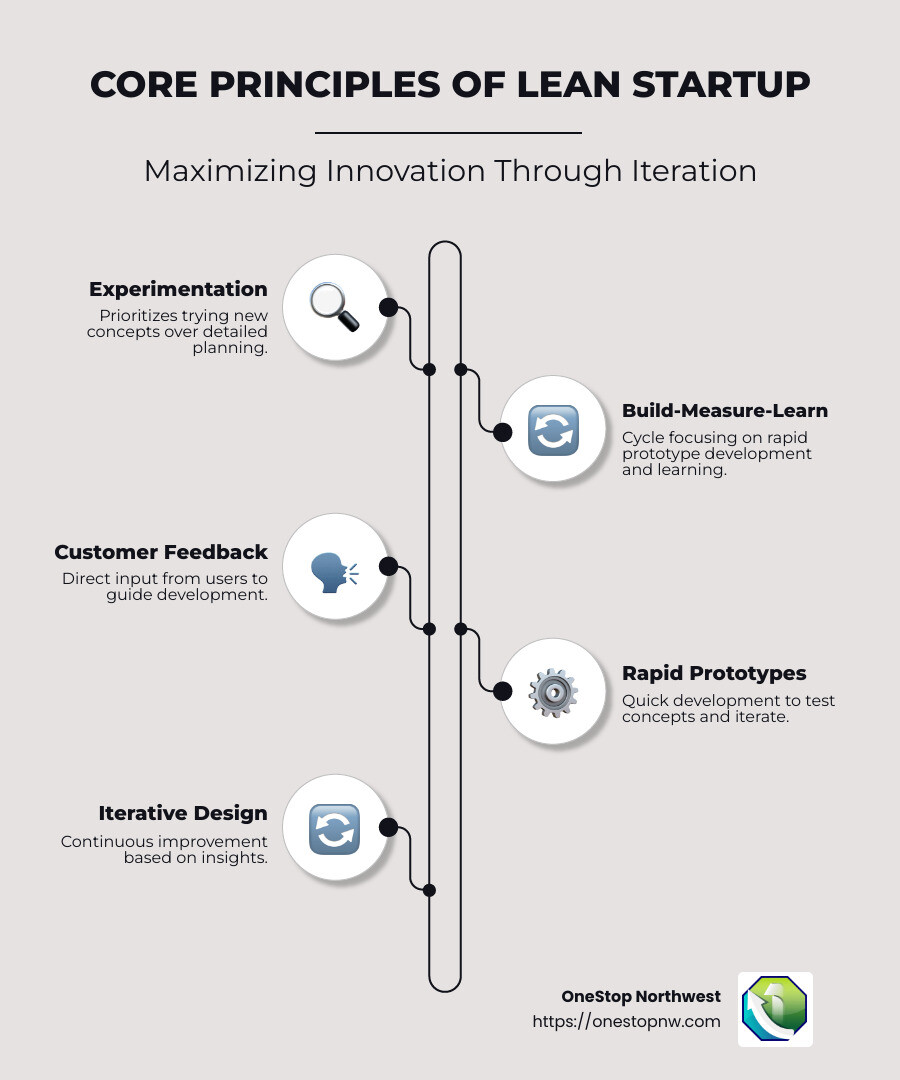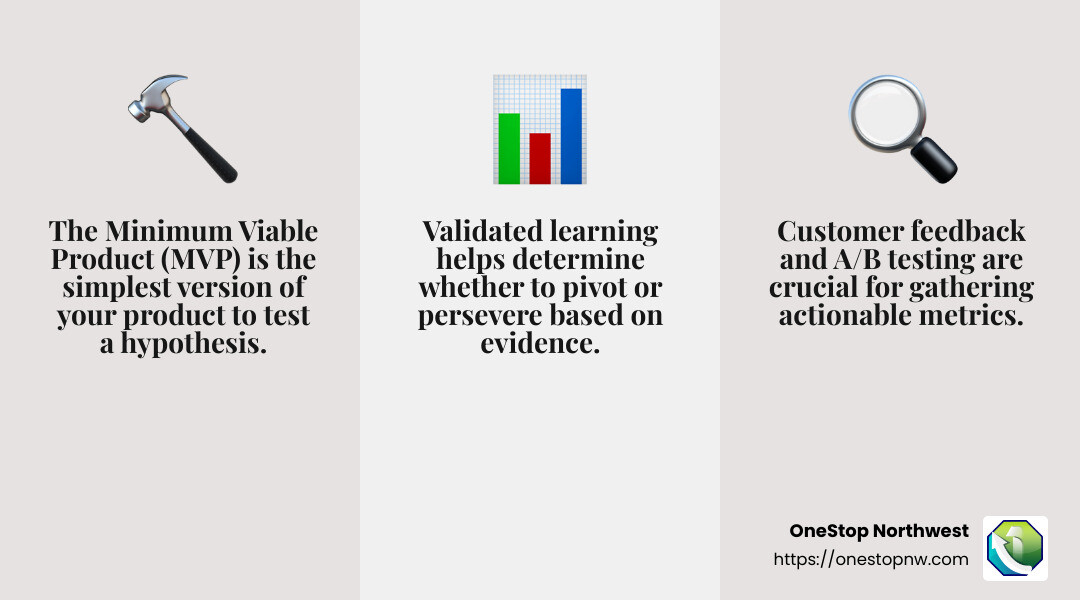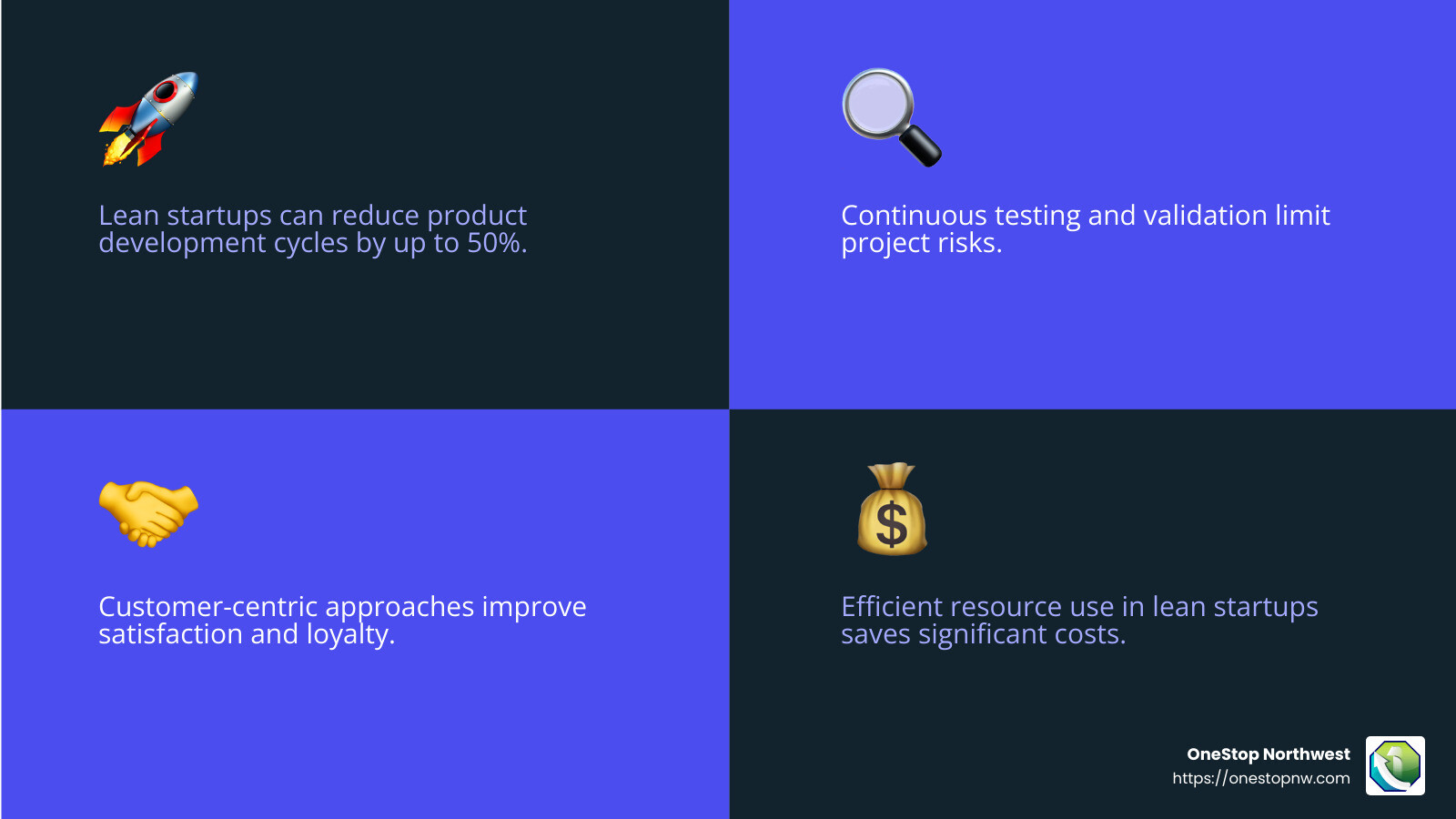Lean Startup Project Management Software: Top 5 Tools
Lean startup project management software is revolutionizing the way small business owners manage their projects. With lean startup principles at its core, this approach emphasizes:
- Experimentation over elaborate planning
- Iterative design processes for rapid improvement
- Customer feedback as a key driver for development
Using lean startup project management software helps businesses make quick, informed decisions, minimizing risks and maximizing innovation.
Lean Startup embodies a shift from traditional project management methods, allowing for flexibility and learning. It’s more about solving real problems and refining solutions based on insights gained directly from end users. This ensures that resources are invested in creating truly valuable products, rather than just fulfilling initial requirements.
I’m Dylan Cleppe. With over two decades of experience in the customer service sector and entrepreneurship, I’ve witnessed how lean startup project management software efficiently optimizes business processes. Let’s dive deeper into how these tools can transform your project management strategy.

Understanding Lean Startup Methodology
The Lean Startup Methodology is a game-changer for startups aiming to innovate swiftly and efficiently. At its heart lies the Build-Measure-Learn feedback loop, a simple yet powerful process that guides startups in developing products that truly meet customer needs.
Build-Measure-Learn
-
Build: Start with a Minimum Viable Product (MVP). This is the simplest version of your product that can be released to test a hypothesis. The MVP is not about perfection; it’s about getting a functional version of your idea into the hands of real users quickly. This helps in minimizing time and resources spent on features that may not be needed.
-
Measure: Once the MVP is out, the next step is to gather data. This involves collecting customer feedback and using actionable metrics to understand how the product is performing. The goal is to obtain insights into user behavior and preferences. A/B testing is a common method used here to compare different versions of a product and determine which one resonates better with users.
-
Learn: With the data collected, analyze the results to determine what’s working and what isn’t. This is where validated learning comes into play. It involves using the evidence gathered to confirm or refute assumptions about the product, market, and customers. Based on these insights, decide whether to pivot (make a significant change) or persevere (continue on the current path).

The Role of Customer Feedback
Customer feedback is the backbone of the Lean Startup approach. Engaging with customers early and often helps startups understand their needs, preferences, and pain points. This ongoing dialogue ensures that the product evolves in a way that aligns with real-world demands.
A great example of this is how startups use customer development techniques like interviews and surveys to refine their MVPs. By continuously iterating based on feedback, businesses can avoid building products that don’t meet market needs.
Incorporating the Lean Startup principles into your project management strategy can lead to faster, more effective product development. It prioritizes learning from actual users, ensuring that the final product is not just functional but also desirable.
This methodology is not just a set of practices but a mindset that encourages flexibility, innovation, and customer-centric development. Let’s explore how lean startup project management software can further improve these principles.
Lean Startup Project Management Software
In the world of startups, speed, flexibility, and efficiency are crucial. Lean startup project management software is designed to support these needs, helping startups deliver products that resonate with customers quickly and effectively.
Speed
Speed is the essence of the lean startup methodology. By using lean project management tools, startups can rapidly iterate on their ideas. These tools enable quick development cycles, allowing teams to build, test, and revise their products swiftly. For example, platforms like OneStop Northwest offer customizable templates and no-code automations that streamline project workflows, reducing the time from concept to execution.
Flexibility
Flexibility is another key benefit of lean startup project management software. These tools support agile methodologies, enabling teams to pivot based on customer feedback. The ability to adapt quickly to new information or changes in the market is vital for startups. Tools like OneStop Northwest allow for real-time collaboration and integration with other applications, providing startups the flexibility to adjust their strategies and processes as needed.
Efficiency
Efficiency in resource use is critical, especially for startups operating on tight budgets. Lean project management tools help startups optimize their resources by focusing on what’s essential. For instance, OneStop Northwest offers powerful workflow management features that automate repetitive tasks, saving time and reducing manual errors. This efficiency allows teams to concentrate on high-impact activities that drive business growth.
Incorporating these lean startup principles through specialized project management software not only accelerates product development but also ensures that startups remain agile and customer-focused. By leveraging these tools, startups can steer the complexities of innovation and competition with greater confidence and success.
Top Lean Project Management Tools
In today’s startup ecosystem, having the right tools can make all the difference. Lean project management tools are designed to help startups stay organized, efficient, and focused on delivering value. Let’s explore some of the top tools that support lean methodologies.
Kanban
Kanban is a visual workflow management method that helps teams track their progress in real-time. By using a Kanban board, startups can visualize tasks, set work-in-progress (WIP) limits, and streamline their processes. This method is particularly effective in managing continuous delivery and deployment, as it allows teams to identify bottlenecks and optimize flow.
Example: Startups like Imenso Software use Kanban to manage customer support activities, ensuring that high-impact tasks are prioritized and resolved quickly. This improves customer satisfaction and loyalty.
Table View
Table views offer a structured way to organize and manage tasks. They provide a clear overview of project details, deadlines, and responsibilities. This format is ideal for startups that need to manage complex projects with multiple dependencies.
List View
List views are perfect for breaking down tasks into manageable steps. By organizing tasks in a list format, teams can focus on one task at a time, reducing procrastination and optimizing productivity. Tools like monday.com offer customizable list views that help startups set project goals and manage deadlines effectively.
Timesheets
Timesheets are essential for tracking time spent on various tasks and projects. They help startups monitor resource allocation and ensure that team members are working efficiently. By keeping track of time, startups can identify areas for improvement and make data-driven decisions to optimize productivity.
Milestones
Milestones are key checkpoints in a project that signify major progress or achievements. They help startups measure their success and keep the team aligned with the project goals. By setting clear milestones, startups can ensure that they stay on track and deliver value to their customers on time.
Incorporating these tools into your lean startup project management strategy can significantly improve your team’s ability to deliver high-quality products quickly and efficiently. By leveraging the right tools, startups can steer the complexities of project management with confidence and success.
Benefits of Lean Startup in Project Management
Embracing the Lean Startup methodology in project management offers numerous advantages that can transform how startups operate. Let’s explore some of these key benefits:
Faster Time to Market
One of the standout benefits of using the Lean Startup approach is the ability to get products to market more quickly. By focusing on building a Minimum Viable Product (MVP) and gathering customer feedback early, startups can rapidly iterate and refine their offerings. This approach allows for quicker validation of ideas and ensures that resources are not wasted on features that customers don’t need.
Fact: According to research, companies that implement lean principles can reduce their product development cycle by up to 50%. This efficiency can be a game-changer in competitive markets.
Reduced Risk
Traditional project management often involves long development cycles, which can lead to significant risks if customer needs are not accurately understood. The Lean Startup methodology mitigates these risks by encouraging continuous testing and validation. By measuring customer reactions to the MVP, startups can make informed decisions about whether to pivot or persevere with their current strategy.
Customer-Centric Approach
A core principle of the Lean Startup is placing the customer at the center of the development process. By actively engaging with customers and incorporating their feedback, startups can ensure that the final product truly meets their needs. This customer-centric approach not only improves customer satisfaction but also builds loyalty and trust.
Quote: Steve Jobs once said, “You’ve got to start with the customer experience and work backwards to the technology.” This philosophy aligns perfectly with the Lean Startup method, emphasizing the importance of understanding and solving real customer problems.
Cost-Effective
The Lean Startup methodology promotes efficiency in resource use, which can lead to significant cost savings. By focusing on the essentials and avoiding unnecessary features, startups can allocate their budget more effectively. This approach also reduces the risk of investing heavily in a product that may not succeed in the market.
By integrating these principles into their project management practices, startups can not only streamline their operations but also ensure they are delivering products that resonate with their target audience. This lean approach fosters innovation, minimizes waste, and maximizes value, setting the stage for sustainable growth and success.
In the next section, we’ll tackle some common questions about lean startup project management software and how it can be applied effectively in various business contexts.
Frequently Asked Questions about Lean Startup Project Management Software
What is lean startup management?
Lean startup management revolves around creating products that customers actually want, using minimal resources. The focus is on developing a Minimum Viable Product (MVP)—a basic version of a product that includes just enough features to attract early adopters and validate a product idea. This allows startups to gather valuable customer feedback early in the process, reducing the risk of failure.
What are the 5 key principles of the lean startup methodology?
-
Entrepreneurs Are Everywhere: The lean startup approach applies not just to traditional startups but to any business or organization looking to innovate.
-
Entrepreneurial Management: Startups require a new kind of management specifically geared toward extreme uncertainty.
-
Validated Learning: Startups exist to learn how to build a sustainable business. This learning can be validated scientifically by running experiments that test a startup’s vision.
-
Innovation Accounting: To improve entrepreneurial outcomes and hold innovators accountable, we need to focus on the boring stuff: how to measure progress, how to set up milestones, and how to prioritize work.
-
Build-Measure-Learn: The fundamental activity of a startup is to turn ideas into products, measure how customers respond, and then learn whether to pivot or persevere.
How can lean startup methodology be applied to project management?
Applying the lean startup methodology to project management involves a series of steps designed to ensure that projects remain flexible and responsive to customer needs:
-
Clear Vision: Start with a clear understanding of what you want to achieve, focusing on solving real customer problems.
-
Define MVP: Identify the simplest version of your product that can be released to test your vision. This helps in getting early feedback without investing too much time or resources.
-
Test and Measure: Release the MVP to a select group of customers and gather their feedback. Use this data to measure success and identify areas for improvement.
-
Be Flexible: Use the feedback to decide whether to pivot (change direction) or persevere (continue on the current path). Flexibility is key to adapting to new insights.
-
Iterate: Continuously refine and improve the product based on customer feedback. Iteration helps in progressively enhancing the product to better meet customer needs.
By integrating these principles into project management, startups can ensure they are building products that truly resonate with their target audience, minimizing waste and maximizing value.
In the next section, we will explore the top lean project management tools that can help implement these principles effectively.
Conclusion
At OneStop Northwest, we know that navigating the business world requires more than just a great idea. It demands a strategic approach to both digital and physical presence. Our comprehensive business solutions are designed to support startups and established businesses alike, ensuring they thrive in today’s competitive environment.
Digital Presence is crucial for modern businesses. With billions of people online, your potential reach is vast. But it’s not just about being online—it’s about standing out. Our team specializes in custom web design, SEO optimization, and social media management to help your brand shine. We create engaging content that not only grabs attention but also builds meaningful relationships with your audience.
Physical Presence is equally important. Whether you’re setting up a new office or expanding an existing one, we provide solutions that streamline your operations. From HR and payroll services to corporate branding and marketing, our expertise ensures your business runs smoothly from day one.
Our unique selling proposition lies in our ability to efficiently set up and launch the ideal platform for your business operations. Whether you’re in Union, Washington, or any of our other locations, we have the tools and expertise to support your growth.
Ready to lift your startup with effective project management and business solutions? Explore how OneStop Northwest can help you achieve your goals and streamline your operations for success.
Incorporating lean startup project management software into your strategy can further improve your efficiency, speed, and flexibility. By focusing on what truly matters—meeting customer needs and minimizing waste—you can ensure your startup is agile and ready to adapt to market changes.
Let us help you steer the complexities of the business world with confidence and clarity. Together, we can build a brighter future for your startup.



